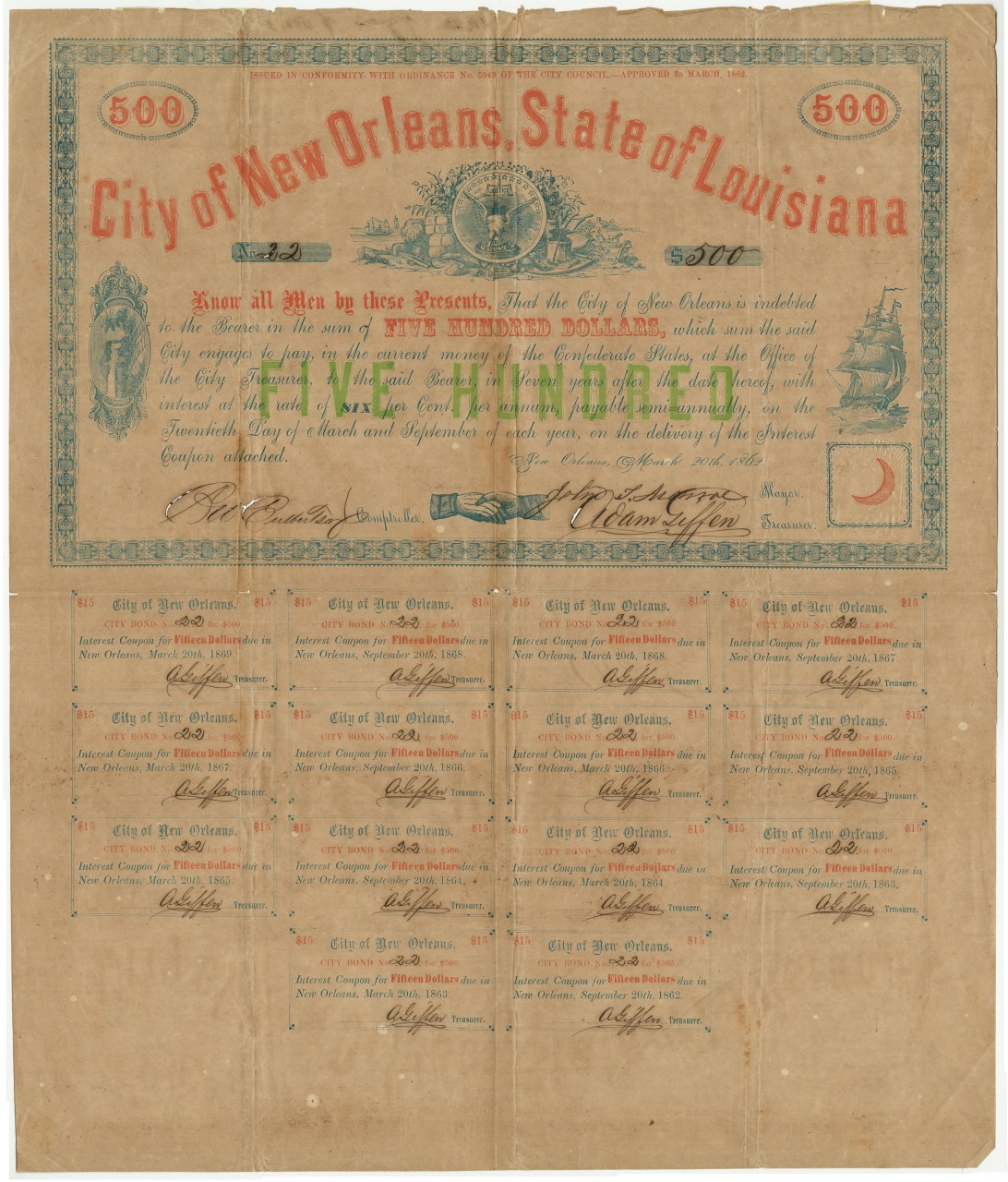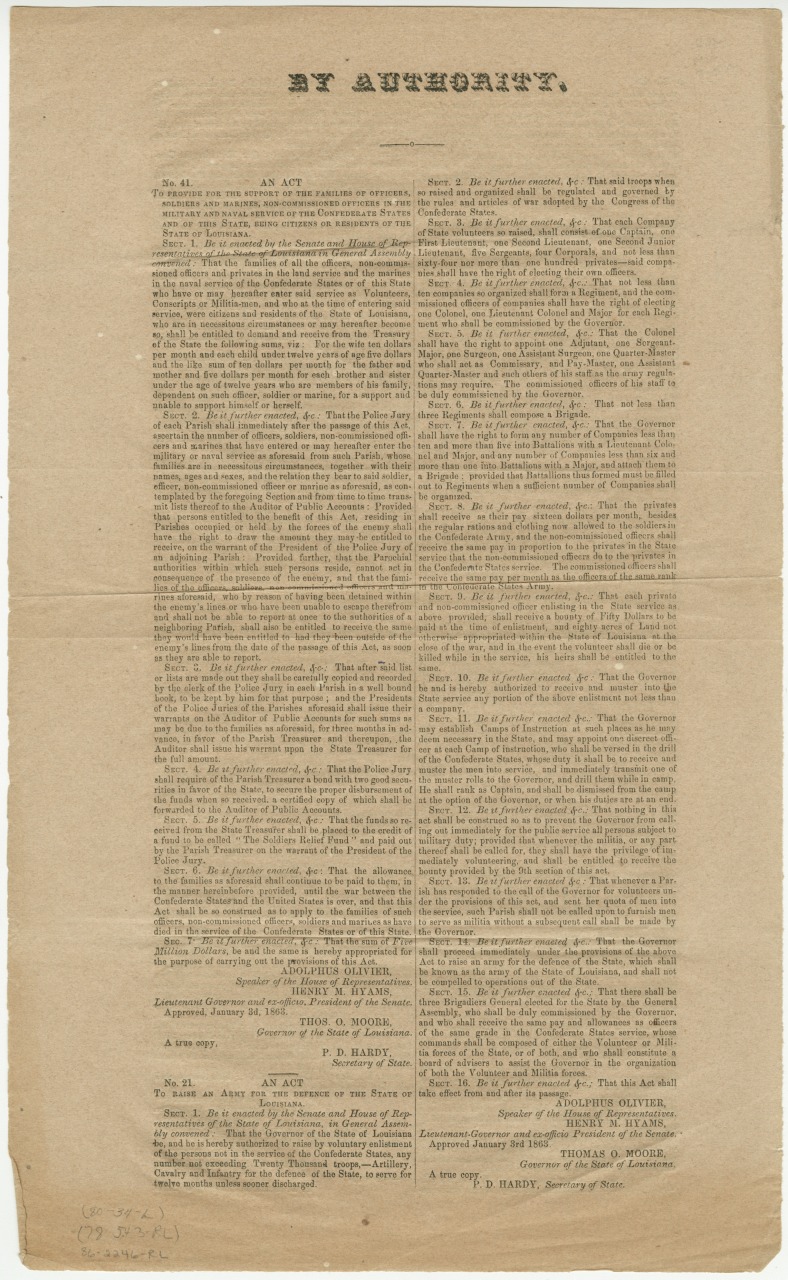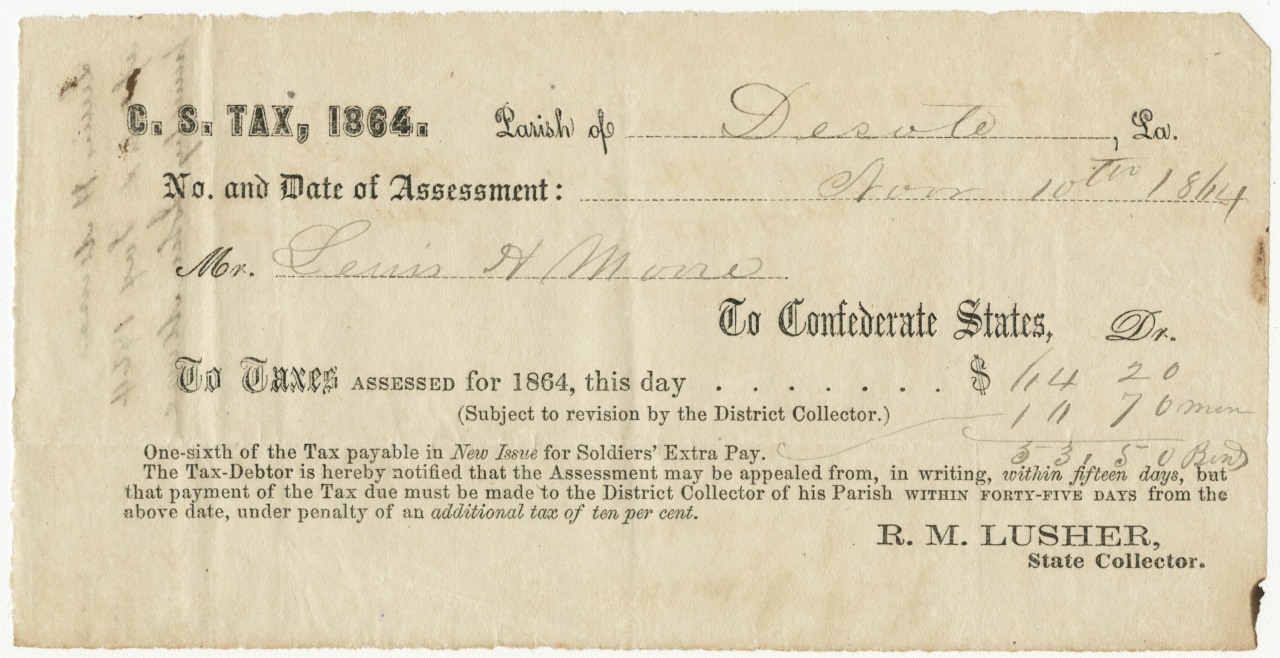Wars are expensive, necessitating large expenditures for munitions, supplies, and labor. The American Civil War was no exception, and as the war dragged on, Southern states faced a new financial crisis in the form of insufficient funds available for the support of the families of those in service to the Confederacy. Measures such as the 1863 act from the Louisiana legislature below mandated that parish police juries disburse funds to qualified families across the state and then apply to the state treasury for reimbursement.

City of New Orleans Confederate war bond
1862; engraving
The Historic New Orleans Collection, gift of Harold Schilke, 55-8-L

An Act to Provide for the Support of the Families of Officers, Soldiers, and Marines, Non-Commissioned Officers in the Military and Naval Service of the Confederate States and of this State . . .
1863
The Historic New Orleans Collection, 86-2246-RL

Confederate States of America tax assessment
November 10, 1864
by Robert Mills Lusher, state tax collector
The Historic New Orleans Collection, 73-193-LRobert Mills Lusher—after whom the modern-day New Orleans charter school is named—served as a Confederate and state tax collector throughout the Civil War. Lewis H. Moore of DeSoto Parish could have paid this 1864 assessment with any combination of Confederate, state, and parish banknotes.
